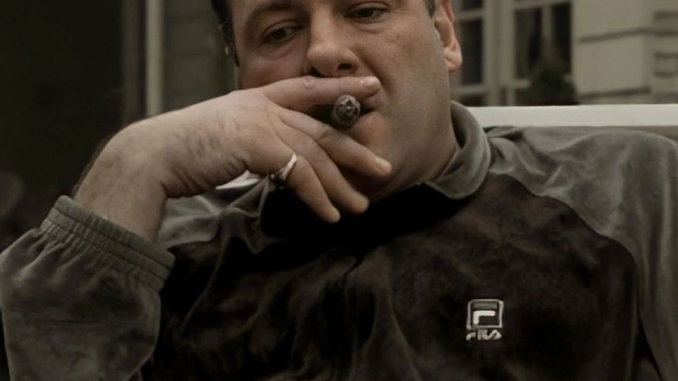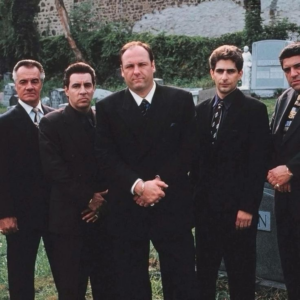
Why The Sopranos is the Best TV Drama of All Time
TV dramas have evolved tremendously over the years, but few shows have made as lasting an impact as HBO’s The Sopranos. Launched in 1999 and running for six seasons, The Sopranos forever changed the landscape of television, raising the bar for storytelling, character development, and genre-blending. It remains widely regarded as the greatest TV show of all time—here’s why.
The Groundbreaking Nature of The Sopranos
Before The Sopranos, TV dramas were often constrained by formulaic plots, predictable characters, and limited creative freedom. The Sopranos shattered these norms and introduced a new era of television, blending crime, family drama, psychological depth, and dark humor in a way that had never been done before.
Unprecedented Complexity in Characters
At the heart of The Sopranos is Tony Soprano, a New Jersey mob boss trying to balance his chaotic criminal empire with his family life. Played masterfully by James Gandolfini, Tony is a deeply flawed and often contradictory character, making him one of the most compelling figures in television history. His vulnerability, anger, and moments of introspection create a multifaceted portrait of a man torn between his brutal profession and his desire for personal peace.

Unlike many previous TV characters, Tony is not a simple antihero; he is an intricate web of contradictions, making him feel like a real person rather than just a fictional character. This level of character complexity was groundbreaking for the time and set The Sopranos apart from other shows.
Psychological Depth That Reshaped TV
One of the most significant achievements of The Sopranos was its exploration of mental health, particularly through Tony’s therapy sessions with Dr. Melfi (played by Lorraine Bracco). These sessions allowed viewers to see a side of Tony that was previously hidden beneath his tough exterior. They provided psychological insight into his motivations, fears, and weaknesses, while also exploring the broader themes of family, power, and identity.
This focus on psychology and character development opened up new possibilities for television storytelling. The show didn’t just entertain—it made viewers think, reflect, and question the characters’ decisions and behavior in a way that few other shows dared to do at the time.
The Masterful Writing That Engaged Audiences
The Sopranos was a writer-driven show, and its creator, David Chase, is widely regarded as a genius in the world of television. The show’s writing is sharp, intelligent, and deeply engaging, with every episode feeling like a carefully crafted piece of art.
A Perfect Blend of Dark Comedy and Tragedy
What made The Sopranos stand out was its ability to seamlessly blend dark comedy with tragedy. The show is filled with moments of humor, often arising from absurd situations or quirky characters, but it never undermines the gravity of the drama. This balance created a unique tone that drew viewers in and kept them on the edge of their seats.
For example, while the violence and tension in the mob world could be intense, Tony’s interactions with his family or his attempts to maintain some semblance of normalcy added a layer of comedy that made the show feel real. It wasn’t just a mob drama—it was a family drama, and that duality was crucial to its success.
Unpredictable Plot Twists and Intricate Story Arcs
Another hallmark of The Sopranos is its unpredictable storytelling. The show never followed a formulaic structure. Plotlines would evolve organically, keeping the audience guessing and adding to the suspense. Key events were often subverted or delayed, creating a sense of tension that was unique for a drama series.
Some episodes were slow burns, while others were fast-paced and action-packed. This unpredictability kept viewers hooked, eagerly awaiting the next twist or turn in the story. The show didn’t just tell you what was going to happen—it forced you to pay attention and engage with every subtle detail.
The Cultural Impact of The Sopranos
The influence of The Sopranos extends far beyond just being a TV show; it had a lasting cultural impact. It reshaped how television was viewed and discussed, and it set the stage for other critically acclaimed dramas like Breaking Bad, Mad Men, and The Wire.
Redefining the Antihero
Tony Soprano was one of the first true “antiheroes” on television—someone who was simultaneously a protagonist and a villain. This blurred line between good and evil became a key theme in many subsequent TV shows. But what set The Sopranos apart was how Tony’s actions and choices were explored in depth. He wasn’t just a mob boss; he was a man with emotional depth and internal conflict. This made his character—and the entire show—more complex and relatable.
A Reflection of American Society
At its core, The Sopranos is a show about the American experience. It explores themes of family, power, identity, and the pursuit of happiness, all set against the backdrop of a changing America. The show captures the struggles of everyday people while also delving into the corruption and decay of American institutions. It was a critique of modern society wrapped in the guise of a mob story, making it a commentary on both personal and societal issues.
The Cinematic Quality of The Sopranos
Beyond the writing and acting, The Sopranos stood out for its cinematic quality. The show’s use of imagery, symbolism, and visual storytelling was groundbreaking for television. The show wasn’t just about what the characters said—it was also about what they did and how it was framed within the shot.
Innovative Use of Sound and Music
The sound design and music in The Sopranos were used in ways that elevated the emotional depth of the show. The music choices—ranging from classic rock to modern hits—were carefully selected to reflect the themes and moods of each scene. The use of silence and subtle background noise also played a significant role in building tension and enhancing the overall atmosphere of the show.
Beautiful Cinematography and Visual Symbolism
From the sweeping shots of suburban New Jersey to the intimate close-ups of Tony’s face, The Sopranos was beautifully shot. The cinematography helped reinforce the emotional weight of the story, with visual metaphors often serving to enhance the narrative. The show’s visual language made it more than just a TV drama—it made it an experience.
Conclusion: The Legacy of The Sopranos
In the years since its final episode aired in 2007, The Sopranos has continued to hold its place as the best TV drama of all time. Its groundbreaking storytelling, complex characters, cultural impact, and cinematic qualities set the standard for what television could achieve. The Sopranos wasn’t just a show—it was a revolution that changed the medium forever.
Today, its influence can be seen in nearly every critically acclaimed drama that followed. The Sopranos redefined what TV could be, and its legacy will continue to shape the landscape of television for generations to come.
FAQs
- What made The Sopranos different from other TV shows at the time? The Sopranos combined psychological depth, complex characters, and unpredictable storytelling, setting it apart from other TV dramas. It also explored new themes like mental health and the duality of the American dream.
- How did The Sopranos influence modern TV dramas? The show introduced the concept of the antihero, a trend that influenced shows like Breaking Bad and Mad Men. It also set the stage for more nuanced, character-driven storytelling in television.
- Why is Tony Soprano considered one of the greatest TV characters ever? Tony is a deeply flawed and complex character, torn between his violent mafia lifestyle and his desire for personal peace. His vulnerability and internal conflict make him relatable and compelling.
- How did The Sopranos blend humor with tragedy? The show used dark humor to offset the often heavy drama, providing moments of levity without undermining the serious themes. This unique blend of comedy and tragedy made the show feel grounded and real.
-
What was the cultural impact of The Sopranos? The Sopranos changed the way people viewed television, leading to a golden age of TV where shows could tackle complex themes and feature morally ambiguous characters. It also sparked widespread discussions about mental health and American society.